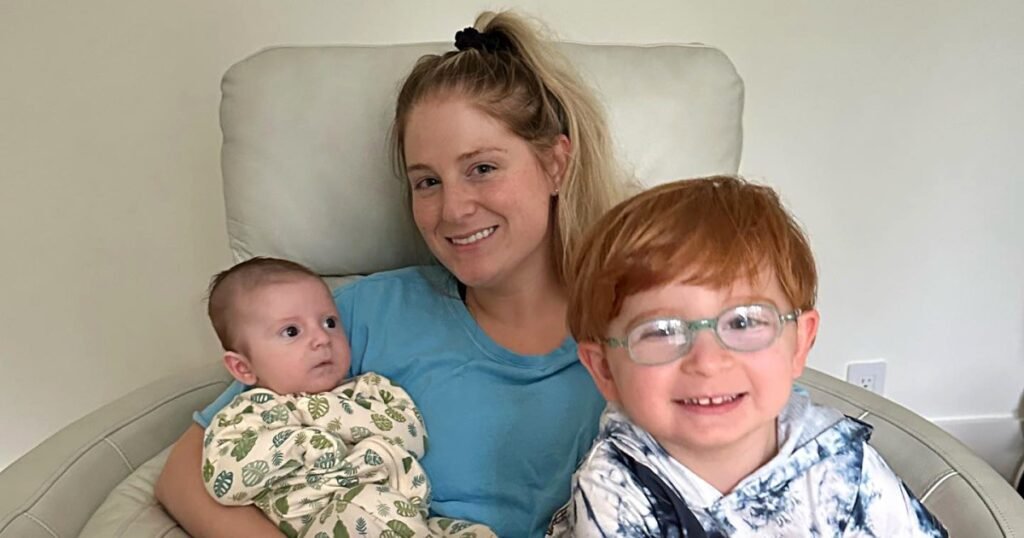
Meghan Trainor Experienced ‘Panic Attack’ One Month After Welcoming Her Second Son
Meghan Trainor faced mental health struggles following the birth of her second child in 2023.
“A month after having my second baby, I reached a breaking point,” Trainor, 31, shared in an essay for Today, which was published on Thursday, January 9. “I vividly remember it, like it was just yesterday — I was sweating while thinking back on it. I was holding my newborn, Barry, who wouldn’t stop crying. Meanwhile, my husband was putting our toddler, Riley, to bed, leaving me alone with Barry, and soon I was in tears too.”
She continued, “I was having a panic attack, utterly exhausted, and it felt like I was dying. I thought if I stood up, I might faint. I didn’t trust myself to hold the baby, and I felt like my body was failing me.”
Trainor and her husband, actor Daryl Sabara, welcomed their sons, Riley in 2021 and Barry in 2023. Shortly after Barry’s birth, Trainor recognized something was amiss.
“I told Daryl, ‘I need help.’ He reassured me, saying, ‘I’m here, no worries.’ But I insisted, ‘No, something’s wrong. I need you to take the baby so I can make some important calls. I need to reach out to my mom and a doctor. I need support,’” Trainor recounted. “So, I contacted everyone. I had faith that I would overcome this, but I needed to hear from my support system that I would be okay. My doctor provided me with a prescription for medication that night, and once I took it, I felt significantly better.”
Trainor had previously been diagnosed with post-traumatic stress disorder (PTSD) after the birth of her first son, Riley.
“Months after his birth, I was plagued by nightmares where I felt as though I was still on the surgical table, sensing the doctor’s hands inside me,” she explained, referencing her C-section. “The doctor confirmed, ‘This is a form of PTSD, and we will need to work through it together.’”
Trainor has a history of battling mental health issues from a young age.
“I was on antidepressants prior to having children. I feel fortunate that I faced mental health challenges before becoming pregnant,” she expressed in the essay published on Thursday. “I already understood how my mind functioned. Entering pregnancy, I was aware I had to ask for help and be prepared.”
Following her doctors’ advice, Trainor maintained her antidepressant regimen throughout both pregnancies.
“In the hospital, many nurses remarked, ‘Oh, it’s likely due to your antidepressants.’ My doctors and psychiatrist assured me this wasn’t the case.” Trainor continued, “However, during my second pregnancy, I often questioned, ‘Is that why Riley ended up in the NICU?’ I felt insane. Still, I remained on my antidepressants, and my second child was also born via C-section, entering the world crying — perfectly healthy.”
Having previously navigated postpartum struggles, Trainor was proactive in seeking help when Barry was born.
“My husband and I communicate openly about everything, even if it’s brutally honest,” she emphasized. “I explained to him that during my first postpartum period, my recovering from major surgery meant it wasn’t fair for him to sleep while I was pumping and in pain. I admitted, ‘I never shared this, but I felt resentment while you rested and I was in discomfort.’ So, for our second child, he took on the entire nighttime duties, caring for Barry and feeding him formula.”
If you or someone you know is struggling or in crisis, help is available. Call or text 988 or chat at 988lifeline.org.



